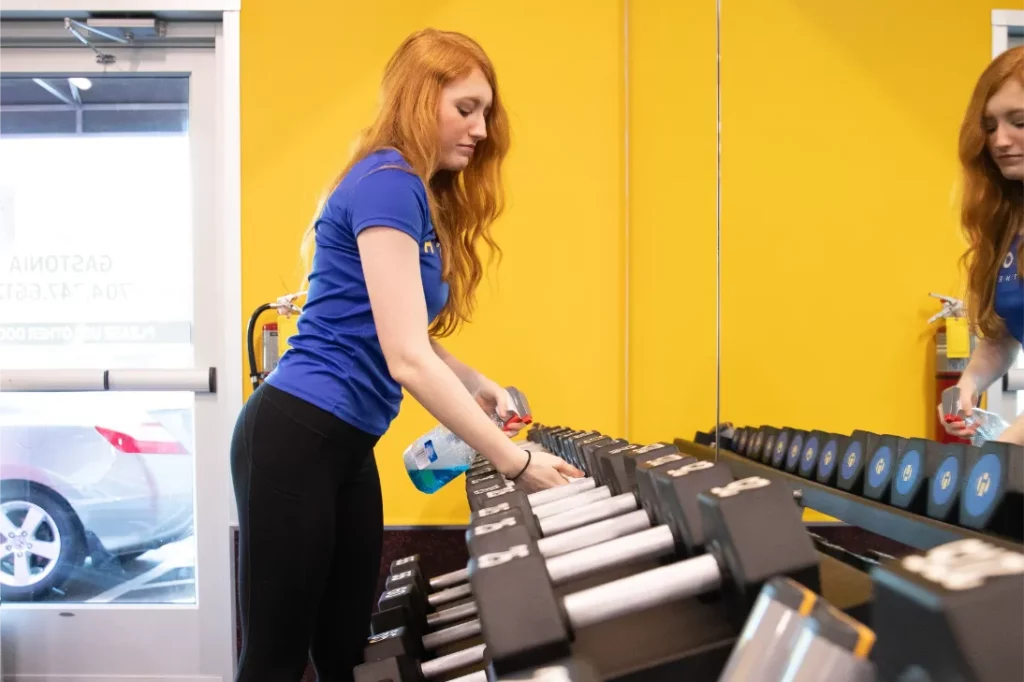Personal Gym Trainers in Concord
Balancing diet and exercise is a journey unique to each individual. This comprehensive guide, inspired by personal gym trainers in Concord, offers practical advice for harmonizing these two essential aspects of health and well-being.
Understanding your body’s needs
Every individual’s body reacts uniquely to different diets and exercise regimens. Recognizing your body’s specific needs is vital for establishing a harmonious balance between what you eat and how you work out.
This understanding begins with acknowledging your body type, metabolism, and any health conditions that may affect your fitness journey.
For instance, someone with a fast metabolism may require more calories or a different macronutrient balance compared to someone with a slower metabolism. Similarly, certain health conditions like diabetes or heart disease require specialized diet plans.
Moreover, it’s important to listen to your body’s signals. If you’re constantly fatigued, you might need to adjust your calorie intake or sleep patterns. If you’re experiencing prolonged soreness after workouts, your body might be telling you to ease up or focus on different types of exercise.
It’s also beneficial to get professional advice, perhaps through a nutritional assessment or a physical check-up, to better understand your body’s unique needs.
Setting realistic goals
Setting realistic goals is a cornerstone of any successful fitness journey. It’s about finding the right balance between ambition and practicality.
Short-term goals might include improving your running time, increasing the number of push-ups you can do, or simply integrating more fruits and vegetables into your diet each week.
Long-term goals, on the other hand, could be losing a specific amount of weight, running a marathon, or achieving a balanced lifestyle that effortlessly incorporates diet and exercise.
These goals must be tailored to your circumstances, such as your schedule, fitness level, and any health limitations. Setting unattainable goals can lead to disappointment and demotivation. Remember, progress takes time, and celebrating small victories along the way is key to maintaining motivation.
The role of diet in fitness
A balanced diet is not just about weight management; it’s about providing your body with the necessary nutrients to function optimally, recover from workouts, and improve fitness levels.
The basics of a good diet include a balance of macronutrients – carbohydrates, proteins, and fats – along with essential vitamins and minerals. Carbohydrates are crucial for energy, proteins are essential for muscle repair and growth, and fats are vital for hormonal function and joint health.
Customizing your diet to suit your exercise routine is also important. For instance, if you’re engaging in high-intensity workouts, you might need a diet rich in carbs for energy.
Conversely, if your fitness routine is more focused on strength training, increasing your protein intake can help with muscle recovery and growth. Always remember that hydration plays a critical role in both diet and exercise performance.
Learn why group fitness classes are effective.
Exercise essentials
Strength training is essential for building muscle mass and improving bone density. Cardiovascular exercises like running, cycling, or swimming are crucial for heart health and stamina. Flexibility exercises such as yoga or pilates enhance joint mobility and reduce the risk of injuries.
Creating a balanced routine involves mixing these different types of exercises to form a holistic workout regimen. This not only prevents boredom but also ensures comprehensive fitness development. It’s important to start at a level that suits your current fitness and gradually increase intensity to avoid overexertion.
Want to try unique fitness classes and work with expert personal trainers? Claim your 3-day free pass at HiTone Fitness Concord now!
Common mistakes to avoid
When embarking on a fitness journey, it’s easy to fall prey to common misconceptions that can hinder progress. One major mistake is the ‘all or nothing’ mindset – believing that if you can’t do everything perfectly, it’s not worth doing at all. This attitude often leads to giving up when inevitable slip-ups occur.
Another common error is focusing solely on the scale. Weight is not the only indicator of health; muscle gain, for instance, might not reflect a drop in weight but is a sign of improved fitness. Also, avoid the temptation of fad diets or extreme workout regimes that promise quick results. These are often unsustainable and can lead to health problems.
Monitoring progress
Tracking progress is essential in any fitness journey. It not only provides motivation but also helps in identifying what’s working and what isn’t. Tools for monitoring progress can range from simple methods like keeping a workout log or a food diary to using fitness apps and wearable technology that track steps, calories burned, sleep patterns, and more.
Regularly measuring your performance in different exercises or noting changes in how your clothes fit can also be encouraging signs of progress. Remember, progress isn’t always linear, and plateaus are normal, but tracking helps in understanding and navigating these phases effectively.
Adjusting plans as you go
Your body and circumstances will change as you progress in your fitness journey, necessitating adjustments to your diet and exercise plan. For example, as you build muscle and improve fitness, you may need to increase the intensity of your workouts or the amount of protein in your diet.
It’s also important to adjust your plan based on your lifestyle changes, like a new job or a change in family commitments. Listening to your body is key – if you’re feeling worn out, you might need more rest or a different type of exercise. Regularly reassessing and adjusting your goals ensures that your fitness plan remains effective and sustainable.
Staying motivated
Staying motivated can be challenging, especially when progress seems slow. Keeping your exercise routine varied and fun is crucial. Try new types of workouts, join group classes, or exercise with friends to keep things interesting.
Similarly, incorporating variety in your diet prevents boredom and ensures a range of nutrients. Setting small, achievable goals and celebrating when you reach them can also boost motivation. Remember, fitness is a lifelong journey, not a sprint, so finding ways to enjoy the process is key.
Community and support
The role of community and support in a fitness journey cannot be overstated. In Concord, there are various fitness groups, clubs, and classes that offer the opportunity to connect with like-minded individuals.
Joining these groups provides a support system that can keep you accountable, offer encouragement, and share advice. Local gyms and fitness centers often host community events or challenges that can be both fun and motivating.
Supplements and additional resources
While a balanced diet should provide all the necessary nutrients, there are situations where supplements might be beneficial, especially if you have specific nutritional deficiencies or higher needs due to intense training.
However, it’s important to approach supplements with caution and ideally under the guidance of a healthcare professional.
Sustainability and Lifestyle Changes
The ultimate goal of balancing diet and exercise is to create a sustainable lifestyle. This means adopting habits that you can maintain in the long run without feeling deprived or overwhelmed. It involves making incremental changes rather than drastic alterations, ensuring that your new habits can seamlessly integrate into your daily life. Sustainability also means being kind to yourself and allowing room for flexibility and occasional indulgences.







